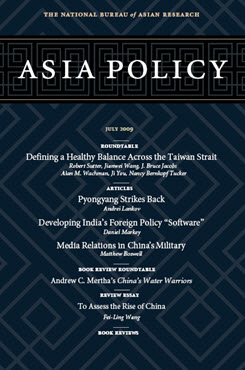Pyongyang Strikes Back
North Korean Policies of 2002–08 and Attempts to Reverse "De-Stalinization from Below"
This article explains why the North Korean government has attempted to reassert state control over society—which had been eroding from 1994–2002—and offers predictions regarding the impact that this shift will likely have on North Korean society.
EXECUTIVE SUMMARY
MAIN ARGUMENT
From 1994 to 2002 North Korean society changed tremendously: state-run industry collapsed, the rationing system ceased to function, and free-market activity, though still technically illegal or semi-legal, became most citizen’s major source of income. Although not initiated by the government, in 2002 some of these spontaneous changes won the belated and conditional approval of the regime.
The evidence emerging in the last three to four years demonstrates, however, that the North Korean government has chosen not to tolerate those changes. This policy of recrudescence, while economically self-destructive, makes political sense because the existence of an affluent and free South Korea makes North Korea far more insecure. The leadership in Pyongyang has reason to believe that any domestic liberal reform in North Korea would lead to a regime collapse.
POLICY IMPLICATIONS
- Pyongyang’s decision to reject reformist policies is based on a rational and well-informed assessment of North Korea’s domestic and international situation. Therefore, the outside world can do very little to influence the regime’s position, and thus there is no chance of meaningful reform in North Korea in the foreseeable future as long as the current regime remains in power.
- Because the current policy makes sustainable economic growth impossible, the North Korean government will need to rely on stratagems to secure vital foreign aid, with the U.S. being one of the main (but not only) targets of these maneuvers. The “North Korean problem” will remain a part of the international landscape in the foreseeable future.
- If the current attempt by the government at counter-reform fails, this failure will create additional avenues for influencing the North Korean government from within.
About Asia Policy
Asia Policy is a peer-reviewed scholarly journal presenting policy-relevant academic research on the Asia-Pacific that draws clear and concise conclusions useful to today’s policymakers. Asia Policy is published quarterly in January, April, July, and October and accepts submissions on a rolling basis. Learn more


